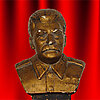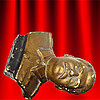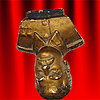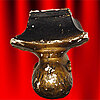|
|
|
|
|
|
About the Project
In 2014, the Institute for Human Sciences (IWM) in Vienna launched a comparative research program on the history of economic ideas in nine communist countries: Bulgaria, China, Czechoslovakia, GDR, Hungary, Poland, Romania, Soviet Union and Yugoslavia. National research teams were established whose members prepare country studies and comparative analyses and an anthology of “hidden treasures” of economic thought under communism. Originally, the program ran under the title Between Bukharin and Balcerowicz. A Comparative History of Economic Thought under Communism.
Initially, it embraced three main thematic fields, ownership, planning, and the market, in which economic theorists of the communist world experimented with influential Grand Designs of social engineering: "social property," "central planning," and "market socialism." Later, with an interest in the sociological and political framework of these conceptual experiments, we also defined a fourth field of comparison: political control (censorship). In these fields we started researching the evolution of economic ideas with the dual purpose of telling unknown stories and warning about the dangers of their repetition.
Following four years of doing research, organizing a series of workshops, and publishing the first thematic volume, the program found a new home at the Research Center for the History of Transformations, University of Vienna (RECET) in 2019. Research continued with the same methods and organization under the new title Economic Collectivism: Old and New. Lessons from the Communist and Post-Communist Experience.
The new title reflects the intention of our research group to transcend the original symbolic boundaries of the program. The old title evoking the person of Bukharin and Balcerowicz referred to the fact that most of the history of economic thought under communism can be situated in the period stretching between the life works of these two scholars/politicians. By the October Revolution, Nikolai Bukharin had turned his back on his professor, Eugen Böhm-Bawerk in Vienna and started writing a book on the Economic Theory of the Leisure Class, which challenged the marginalist paradigm (and liberal economics in general) and marked the beginning of what proved to be a long detour from the history of Western economic thought. The end of the digression can be represented by Leszek Balcerowicz’ turn to neoclassical economics and free-market ideas in the second half of the 1980s. While the collectivist antecedents of communist economic ideas have not been overlooked by us, the new title indicates our aim to extend research to the post-communist era as well.
The history books of economic thought lack vast chapters covering the evolution of economic doctrines under and after communism. Our research program discusses economic ideas in these time periods in the broader context of collectivism and liberalism to dispel the conventional view that these ideas are exotic products of communist and post-communist societies, and therefore basically irrelevant to modern economics. We are convinced that prejudices such as these can be overcome by a non-parochial comparative research program that portrays the evolution of economic thought from an international perspective, without celebrating Soviet-type doctrines in retrospect or fabricating a utopia of “true collectivism” after communism.
Research Program
Our program consists of two phases. The first focuses on the history of economic thought under communism while the second discusses the post-1989 developments. Below, we will present the main goals and preliminary results of research done in the first phase. Information on our studies of the post-communist period will be provided once the second phase starts.
On the state of the art
The history books of economic thought are disturbingly incomplete. They fail to cover the evolution of collectivist economic ideas. While Western types of collectivist economic thought, ranging from anarchism through corporatism to some statist versions of the doctrine of Soziale Marktwirtschaft, also do not prompt intellectual historians to suggest refined comparative schemes of interpretation (Marxist political economy being an exception), the largest gap in those books has been due to a widespread neglect of the varieties of collectivism under and after communism. Historians of economic thought still tend to cite only a handful of scholars ranging from Boris Brutzkus, through Michał Kalecki and Leonid Kantorovich to János Kornai, ignoring the scientific oeuvre of a large number of gifted economic theorists who also thought to develop economic science by inventing, defending, reforming or rejecting communist economic ideas during the 20th and early 21st centuries. Even those scholars in the West (e.g. Abram Bergson, Evsey Domar, Alec Nove, Benjamin Ward, Peter Wiles etc.) who criticized communist economic concepts and/or put forward collectivist-style theories – often on a higher scientific level than most of their colleagues in the East – are also seldom accorded the respect they deserved.
Prior to 1989, the lack of any comprehensive history of economic thought under communism could be explained by a mix of pro-systemic ideological biases, censorship and the obstacles to transnational communication. With the collapse of the Soviet empire, these impediments vanished in most of the ex-communist countries, but so did the excitement about the history of communist economic ideas (including their reformist variants) as well. Moreover, in the light of the massive influx of neoclassical economics from the West, even those theories (e.g., optimal planning, self-management, investment cycles, shortage, the shadow economy, etc.), which had been considered by the local research communities the most advanced and original, appeared backward and pathetic. In the “we had better forget them” – mood, almost nobody saw the need for the lacuna in the universal history of economic thought to be filled.
This amnesia is reflected in the lack of profound country studies of the history of economic thought in most ex-communist states. Nor has any serious attempt been made to capture the diversity of economic ideas across the country lines. Those who nonetheless embark upon comparison content themselves with binary models such as “classical communist versus reform communist” and “market socialist versus neoliberal” economic ideas or subscribe to methodological nationalism resulting in the simplistic types of Yugoslav theory of self-management, Soviet mathematical economics, or the concept of Chinese agrarian reform. Meanwhile, scholars and students keep on complaining about the lack of basic monographs, edited volumes, anthologies and bibliographies. Yet, the first – rudimentary – comparative projects[1] completed after 1989 (with the participation of many of the principal researchers in our group) remained without followers.
Due to the scarcity of scientific biographies of eminent economists and of their memoirs, as well as of historical case studies of research work in leading academic institutions, of literature reviews, catalogues of archival materials, etc., the solid groundwork on which historians could rely is missing. Those few experts who still make attempts to work on the development of economic ideas under communism tend to apply rather old-fashioned research techniques. With the exception of a handful of younger scholars (most of them work on Soviet economics), they focus on Great Economists, “magic” years/decades, grand scholarly debates, and spectacular conflicts between science and politics. They are loosely interested in the sociology of science, and avoid asking questions about basic evolutionary patterns of economic thought, the political roles of economists, or the relationship between local and global scholarship. Micro-history or histoire croisée are virtually non-existent, and oral history and archival research are not amongst the normal research procedures employed.
Our program is particularly timely now because this is perhaps the last occasion on which the task of the conceptual reconstruction of economic ideas under communism can be accomplished with both empirical precision and intellectual empathy. Experiencing the rapid erosion of archival materials and the passing away of key eye-witnesses, it is doubtful whether future generations of historians will have the chance to understand what economists under communism might have meant when struggling (and often risking their lives), for example, for including the term of “socialist commodity production” in their textbooks, or for justifying the use of mathematical models in central planning.
Why communism? Working hypotheses
This program does not originate in a mere determination to bridge a gap in history-writing, or in a sudden wish to document the fading habitat of a unique species of economic knowledge. There are three further reasons why revisiting the communist period is of importance today.
First, in the wake othe unexpected “recoil” of global capitalism during the first decades of the 21st century, new doubts were raised about the feasibility of a liberal economic order, contributing to a revival of interest in collectivism, above all in the doctrines of self-management and market socialism. In the ex-communist countries of Eastern Europe today this skepticism coincides with frustration over the seamy side of post-communist liberalization such as social polarization, corruption, oligarchic rule and the like. More and more frequently, innocent young experts and cynical political entrepreneurs are equally ready to embrace collectivist, even communist, economic ideas (such as nationalization, state intervention, and decommodification). Thus, the Mises-Hayek hypothesis of the impossibility of rational calculation in a Gemeinwirtschaft is being challenged again, and concepts like sharing economy, basic income, developmental state, taxing the rich, etc., are spreading all over the world. As many of the liberal illusions cherished in 1989 have evaporated, the historian is confronted with new questions about the surprising durability of certain collectivist economic ideas emerging before and during communism.
“New collectivism” is particularly characteristic of the former Soviet empire. 1989 seems far away, and the concept of a post-communist liberal paradise is in ruins. Currently, there are at least as many types of post-communist regimes as there are ex-communist countries. During the past quarter of a century, many of these countries either have not succeeded in getting rid of certain key features of communism, or are currently returning to various forms of state-collectivism. The Chinese combination of economic liberalization under the aegis of a hardliner communist party-state, a new autocracy in Russia, and a great variety of statist-oligarchic regimes in many other ex-communist states all serve as serious warnings of the dangers of “illiberal capitalism.” The rise of such regimes ceased to be an isolated – Asian – horror story shocking the Western observers. A cursory look at the emerging capitalist regimes outside the former Soviet Union, including EU member states like Poland and Hungary, would suffice to find similar cases of hybridization.
At the moment, the post-communist transformation does not seem to be a triumphal march of liberalism, even less of neoliberalism. State interventionism, even dirigisme, are on the rise. In a number of countries, banks, public utility companies, land, welfare services, etc., are being renationalized, and new public firms (often monopolies) established. Foreign investors suffer discrimination, price controls are reintroduced for a growing number of goods and services, and income redistribution by the state is increasing. Where business and politics seemed separated and this separation safeguarded by the rule of law, they became intertwined again in informal ways. Both state capture and its opposite, when the government conquers business life, are fundamental features of this old-new political economy. In some countries society is ruled by a quasi-monoparty. Cronyism, cleptocracy, feudal privileges and the like are all clear signs of both surviving and nascent regimes of corruption.
Second, according to a frequently-voiced criticism, economic ideas under communism do not deserve too much scholarly attention because, to put it simply, they were original but crude and faulty. Why bother, many observers ask, with obscure theories of public ownership and central planning or their partial liberalization that in the best case resulted in “reinventing the wheel” in the form of some kind of communist reform program simulating private ownership and the market? Although economists on both sides of the East-West divide often dealt with very similar problems – and frequently the Eastern solutions to these problems helped develop economic sciences in the West (e.g., Oskar Lange and welfare economics) – the above criticism cannot be ignored. Even the higher-quality products of economic knowledge in the countries concerned were frequently unable to reach the scientific level of the Western mainstream. Much of our “story” played out at party congresses at least as often as in university offices; it was heavily affected by changes in the economic policy of the party-state; and the language used by economic theorists reminded the analyst of political/ideological rather than scientific discourse. This does not mean, of course, that the intellectual historian should not discuss non-rigorous theories with sufficient rigor.
Nevertheless, the prospects for identifying a series of sophisticated concepts are not hopeless. Economic thought under communism, especially in its late, reformist phase, can be depicted as a set of “borderline-case” theories that examined massive government and market failures (overregulation, shortages, shadow economy, etc.) in vivo, which for a long time were supposed to occur in capitalist economies mostly in vitro. With time passing, a growing number of economic experts on both sides of the Iron Curtain used similar scientific concepts and instruments, and the quality of economic scholarship under communism improved accordingly. Hence, the dialogue between Eastern and Western economists (ranging from the “Socialist Calculation Debate”, to neoclassical, and even heterodox economics) needs to be put under scrutiny in a program like this. New Institutional Economics is one of the recent cases in point. Many of its main propositions (particularly, in the field of public choice and property rights) were advocated in Eastern Europe before 1989, even if on a less subtle level of formal analysis.
Third, discussing economic ideas under and after communism in the context of collectivism can challenge the view that these ideas are exotic products of pseudo-science saturated with old-school Marxism, Leninism, Stalinism, etc., therefore, basically irrelevant. We claim that Orientalist prejudices such as these can only be overcome by a research program that studies the evolution of economic thought in an international framework, without celebrating Soviet-type doctrines in retrospect or fabricating a utopia of “true collectivism” after communism (e.g., with the help of central planning controlled by artificial intelligence). The works of Boris Brutskus, Aleksandr Chayanov, Nikolai Kondratiev, Eugene Slutsky, and Leonid Kantorovich, to name but a few Russian economists, may be prime targets of a program that seeks to find “hidden treasures” in a seemingly deserted land.
In any event, who reads Boris Brutskus, Oskar Lange, or Tibor Liska today? The Russian scholar gave the first on-the-spot diagnosis of the impossibility of rational planning in a really-existing communist economy as early as 1921. The Polish economist refused Brutskus’ thesis of impossibility in 1936, and constructed a Walrasian model of market socialism to replace the command economy without returning to capitalism. Finally, the Hungarian reformer invented the utopia of “entrepreneurial socialism” in 1965 combining laissez faire with a kind of basic income scheme and collective ownership. The three experts gave a large impetus to research on welfare economics, public choice, the economics of information, etc., but above all on rival economic systems in the East and the West. Whilst their ideas continue to influence scholars and politicians, their names have been nearly forgotten. Brutskus’ work has remained a mainstay of the economic critique of communism; the Langean paradigm of market socialism, especially its ex-Yugoslav version of workers’ self-management, has always attracted social movements all over the world; and Liska’s quest for entrepreneurship contributed to property rights reforms throughout Eastern Europe and China during the past three decades. Yet, the scientific discoveries of these scholars, as well as those of many dozens of their contemporaries in the former Soviet Bloc do not feature in standard textbooks of economics and its history.
Nevertheless, communism as a subject of scientific inquiry has become “sexy” again. As usual, the most spectacular research projects of political and social/cultural history take the lead. We now know what happened at Stalin’s dinner table or how peasants in Southern Romania bribed communist officials, whereas, unfortunately, in the field of economics even some of the most erudite scholars have remained nameless. It would be a pity not to exploit the new attraction of the ancien régime for giving them back their names.
Research objectives and methods
In examining the ways in which collectivist values permeated economic thought under and after communism, we will go beyond the distinction between horizontal (community-based) and vertical (state-based) collectivism. Our research questions also will concern:
- the basic points of reference of economic collectivism (family, ethnic group, enterprise, region, nation, state, society, and so forth), its cohesive force and sphere of influence;
- the durability (flexibility) of collectivist concepts;
- their ability to combine, on the one hand, with liberal doctrines and, on the other, with old and new varieties of Western-type collectivist doctrines;
- the invention of new collectivist ideas and their consolidation, or – on the contrary – their failure to strike roots in economic thought;
- the ratio between reason and rhetoric in collectivist economic theories; and
- the overall scholarly quality and political relevance of these theories.
As mentioned, the first phase of our research program follows the Bukharin-Balcerowicz trajectory.[2] Nevertheless, we want to avoid the impression that the evolution of economic ideas under communism follows a straight path leading from extreme collectivism to extreme liberalism. Instead, according to our working hypothesis, that path was fairly winding and it connected two – not quite unambiguous – worlds of thought, a predominantly collectivist and a moderately liberal one (that could not get rid of its collectivist features even during the post-communist transformation).
Locking in our research between the 1917 and 1989 revolutions would arguably result in a grave oversimplification by excluding both the antecedents and the repercussions of scientific change under scrutiny. Simply put, Bukharin might have been more tolerant towards the theories of marginal utility if he had not stood under the influence of collectivist doctrines represented by German and Russian social democracy, end-of-century utopias, and the model of war economy during World War I. Similarly, Balcerowicz would perhaps be less devoted to shock therapy at the start of the post-communist transformation if he had not experienced the tenacity of certain collectivist ideas during the agony of communism.
We study the evolution of economic thought in three main thematic fields, ownership, planning, and the market, in which communist economists experimented with influential Grand Designs of social engineering: social property, central planning, and market socialism. Our interest in the sociological and political framework of these conceptual experiments led us to defining a fourth field of comparison: political control (censorship)
Comparison embraces almost all countries of Eastern Europe (in its traditional Cold War sense, including the Soviet Union) and – unlike sporadic ventures in writing the intellectual history of communism – does not ignore China. It concentrates on the transformation of economic ideas but does not tear them out of their contexts in economic, political and social/cultural history (thereby combining “internalist” and “externalist” methods of historical analysis); and examines how the East-West dialogue affected the development of economic thought but does not overlook the East-East (and East-South) exchange of ideas.
The authors of the country chapters in our comparative volumes focus on the ideas not only of those economists who lived and worked in the selected countries but also of their emigré and foreign colleagues who reflected on the problems of communist economic doctrines. Besides the “high culture” of economic thought, including eminent scholars, their schools and scientific discoveries, the “mass culture” of economic knowledge (e.g., university textbooks and curricula, economic programs of the communist party, articles in economic newspapers, etc.) are also examined. In this way we are able to explore, to twist Quentin Skinner’s phrase, the “importance of small texts” as the context of the few “great texts” emerging in the communist period. For similar reasons, attention is devoted to key issues in the sociology of knowledge, ranging from the institutional history of leading research centers and university departments, through the advisory and political activities of economists, all the way down to the political control of economic research and education, and the rules of censorship. The research methods go beyond a “close reading” of scientific texts to include archival research, in-depth interviews, case studies and the like.
We apply five main perspectives (chronological, thematic, qualitative, sociological and methodological) in writing the history of economic thought under communism. Following an overview of the consecutive stages of the evolution of ideas, the authors turn their gaze upon a selection of essential themes characteristic of the economic research programs in the communist period. Then they briefly cover the life work of a few (certainly fewer than Schumpeter’s ten) great economists in each country, and examine the underlying sociological/political conditions of changes in economic ideas. In the end, the country chapters tackle some fundamental methodological issues (e.g., origins and diffusion patterns of economic knowledge, local traditions and original discoveries, etc.) as well as asking the Big Question: how do the scientific costs and benefits of the historical detour initiated by scholars like Bukharin relate to each other?
Research results
The program’s final goal is to produce four comparative volumes (and an anthology) with a quasi-encyclopedic thrust. In the beginning, this seemed an overambitious venture. By now, experience has shown that publishing the results of such a detailed and multifarious research program in only four volumes (instead of nine voluminous national monographs and a comparative analysis) is a feasible undertaking. Based on the reception of the first two volumes, we trust that our publications will become indispensable titles in the catalogues of (print-based and electronic) research libraries all over the world. In addition, the country teams will incorporate their research results into university curricula on the history of economic thought under communism (or, more widely, collectivism), and publish their monographs in local languages.
[1] Janos Matyas Kovacs and Marton Tardos (eds), Reform and Transformation. Eastern European Economics on the Threshold of Change, London/New York: Routledge, 1992; Hans-Jürgen Wagener (ed), Economic Thought in Communist and Post-Communist Europe, London/New York: Routledge 1998; Max Kaase and Vera Sparschuh (eds), Three Social Science Disciplines in Central and Eastern Europe (1989-2001), Bonn/Berlin/Budapest, GESIS and Collegium Budapest 2002; Janos Matyas Kovacs and Violetta Zentai (eds), Capitalism from Outside? Economic Cultures in Eastern Europe After 1989 Budapest/ New York: CEU Press 2012.
[2] Ironically, the end point of that trajectory also had a Viennese connection. It was at a conference organized by the IWM in 1988 that Balcerowicz presented a paper on the Socialist Calculation Debate, in which he expressed strong sympathy toward the “Mises-Hayek thesis,” perhaps for the first time in his life, while still flirting with the idea of self-management rather than privatization. (See Leszek Balcerowicz, “The Socialist Calculation Debate and Reform Discussions in Socialist Countries,” in J.M. Kovacs and M. Tardos (eds), Reform and Transformation… 5-18).
Activities
After having established the nine national research teams, their members conducted pilot studies and prepared position papers. The latter consisted of five chapters:
- Differences between one of the first (moderate) and the last (radical) programs for economic reform
- Changes in studying the various forms of ownership under communism
- The evolution of the research programs of an eminent mathematical economist
- Contrasts between a pre-reform and a post-reform curriculum of a faculty of economics at a leading university
- Links between economics and sociology
The authors were asked to present the state of the art in writing the history of economic thought under communism in their respective countries. The papers concluded with preliminary hypotheses regarding the comparison of the national paths of the evolution of economic ideas as well as the place of the respective country in a possible typology. In the annex, articles and book excerpts were listed which the teams would like to include in an anthology of “hidden treasures” of economic thought under communism.
The program passed its first, experimental phase in 2015. It ended with a methodological workshop, the participants of which finalized the research techniques of the program and discussed the results of the position papers. Based on the high quality of the papers, we decided to publish three thematic/comparative volumes on theories of ownership under communism, on planning concepts (with an emphasis on the mathematization of communist political economy), and on market doctrines, respectively. The first traces the twists and turns of the road leading from the idealization of public ownership to a reluctant rediscovery of private property rights; the second shows how the monopoly of verbal analysis in economic thought was broken by the new research program of “optimal planning” and the influx of mathematical models of planning from the West without resulting in a radical turn to neoclassical economics; and the third discusses the varieties of the utopia of market socialism.
The first volume Populating No Man’s Land. Economic Concepts of Ownership Under Communism was published in 2018 (see Publications).
The second volume Communist Planning versus Rationality. Mathematical Economics and the Central Plan in Eastern Europe and China came out in 2022 (see Publications). The proposal for research on this volume was discussed at the workshop Rationality Found and Lost. Evolution of Planning Concepts Under Communism. (Institute for Human Sciences, Vienna, April 27-29, 2018)
The third volume will be published in 2023. The proposal for research on this volume was discussed at the workshop Reforming Communism, Refusing Capitalism. Evolution of Market Concepts under Communism. (RECET, Vienna University, December 13-15, 2019)
While working on the three volumes, we decided to produce an additional volume on the political and sociological conditions of economic research and education in the communist era. This fourth volume also will be published in 2023. The proposal for research on this volume was discussed at the workshop Ideas under (Self-)Control. External Drivers of the Evolution of Economic Thought under Communism. (RECET, Vienna University, April 8, 2021)
Depending on the success of the four comparative volumes and future funding opportunities, we also consider the publication of an anthology of “hidden treasures” of economic thought in the communist era.
In November 2021, an international conference took place at RECET, Vienna University on Economic Collectivism: Old and New in the framework of our research program. The conference served as a link to the next phase of the program since it also discussed collectivist concepts in the post-1989 era. A detailed agenda can be found here.
Currently, while making the finishing touches to the third and fourth volumes, we are raising funds for continuing the research program to cover the evolution of economic thought in the course of the post-communist transformation.
Publications
The publishing house Rowman and Littlefield decided to publish our four volumes in its Lexington Books series Revisiting Communism: Collectivist Economic and Political Thought in Historical Perspective.
- Volume 1 – “Populating No Man’s Land. Economic Concepts of Ownership Under Communism” was published in 2018.
- Volume 2 – Communist Planning versus Rationality. Mathematical Economics and the Central Plan in Eastern Europe and China was published in 2022.
- Volume 3 – Reforming Communism, Refusing Capitalism. Evolution of Market Concepts under Communism (working title), forthcoming.
- Volume 4 – Ideas under (Self-)Control. External Drivers of the Evolution of Economic Thought under Communism (working title), forthcoming.
The tetralogy will represent the first comprehensive and comparative history of economic thought under communism. The average size of the volumes amounts to four hundred pages, each including nine country studies an ample comparative analysis as well as short biographical sketches and long lists of primary literature. Many of the book chapters and/or their preliminary papers have been published in local languages.
Participants
The project is managed by RECET from Vienna. The group of team leaders and Advisory Board members includes a number of leading economists as well as economic and intellectual historians. The hope is that a healthy balance between scholars who “still saw Oskar Lange or Leonid Kantorovich alive” and their colleagues who study the past with a fresh eye and unbiased curiosity will help advance our research program.
National team leaders
|
|
Principal researchers
|
Bulgaria
China
Czechoslovakia
GDR
Hungary
Poland
Romania
Soviet Union
Yugoslavia
|
Project Management
Advisory Board
- Andrei BELYKH, University of Saint-Petersburg
- Peter BOETTKE, Department of Economics, George Mason University
- Vojmir FRANICEVIC, Department of Economics, Zagreb University
- (†) Jerzy OSIATYNSKI, Institute of Economics, Polish Academy of Sciences, Warsaw
- (†) Pekka SUTELA, Aalto University, Helsinki/ Sciences Po, Paris
- Hans-Jürgen WAGENER, Europa-University Viadrina, Frankfurt/Oder
- Chenggang XU, Stanford University and Imperial College London
Editorial Board
- Paul Dragos ALIGICA, Mercatus Center, George Mason University, University of Bucharest
- (†) Philip HANSON, University of Birmingham
- Janos Matyas KOVACS, RECET, University of Vienna
Program management RECET (University of Vienna)
- Project coordinator: Lukas BECHT
- Project director: Janos Matyas KOVACS
Contact
Lukas Becht, RECET, University of Vienna, A-1090, Wien, Spitalgasse 2/Hof 1.1
Funders
The research program was supported by the Institute for Human Sciences, Vienna (IWM), the Charles Koch Foundation, the University of Vienna, and the Research Center for the History of Transformations (RECET).
|
|
|
|
|
|






